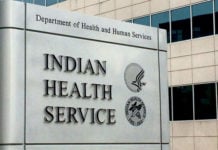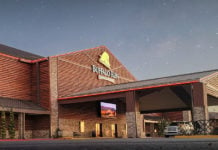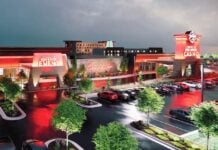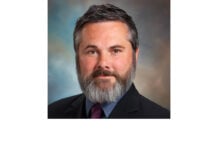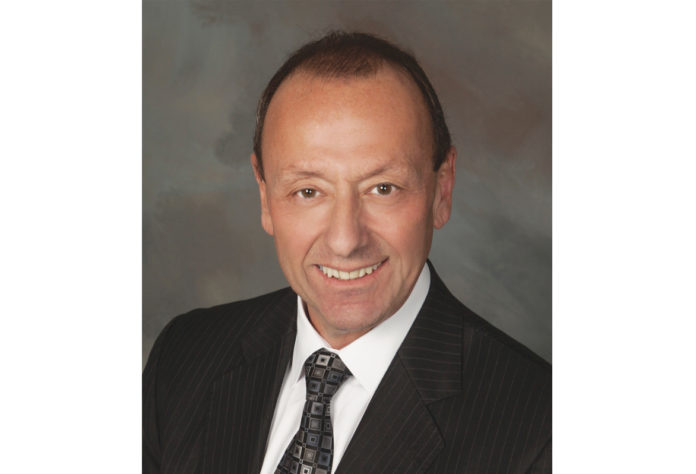by Andrew Klebanow
With approximately 60 percent of the U.S. adult population now vaccinated, many states and tribal gaming authorities have begun to ease restrictions on casino and restaurant capacity. While the pace of the casino industry’s return to normal operations has in large part been determined by state and local health officials, casinos within the same jurisdiction or narrow trade areas have moved at their own pace, with different properties lifting some restrictions while leaving others in place.
A survey of tribal casinos in five western states conducted in May of 2021 revealed that individual tribes were moving at a slow and deliberate pace while some commercial operators, notably in Nevada, were moving more aggressively to return their properties to full capacity. This study also revealed that certain operational and marketing practices adopted by operators early in the pandemic will remain in place even after health and safety protocols are relaxed. The challenge for all tribal casino operators will be to effectively communicate to their employees and customers why some policies will remain while others are lifted.
Las Vegas and the Promise of High Expectations
The pace at which Las Vegas casinos are lifting restrictions may pose an additional problem to tribal casinos with unrealistic expectations. While Las Vegas’ casinos do not necessarily compete directly with tribal casinos, a percentage of gaming customers from across the U.S. do vacation there. Those customers that recently visited Las Vegas or intend to so in the coming months will experience decidedly different health and safety protocols, ones that are far more liberal than what they may experience in their home markets.
As of June 1, the Nevada Gaming Control Board rescinded all Covid-19 mitigation protocols. Customers are no longer required to wear masks; plexiglass shields have for the most part been removed; and limits on casino capacity have been lifted. Showrooms are expected to reopen in the next several weeks as are many other non-gaming amenities. Nevada was also one of the few jurisdictions that did not impose any restrictions on smoking in casinos during the Governor’s Emergency Directive.
As customers experience these new post-pandemic gaming environments when they visit Las Vegas, they will return to their home markets, and faced with a variety of restrictions, ask why their favorite local casino still operates under these constraints on behavior. Managing those expectations will be a challenge for all regional casino operators.
Mask Mandates
In May, the Centers for Disease Control advised that people who are fully vaccinated will no longer need to wear a mask while indoors. This placed casinos and other businesses that operated with mask restrictions in the onerous position of either enforcing pre-existing mask mandates or allowing customers to enter their casinos without masks.
In the recent survey, most tribal casinos chose to continue to maintain mask mandates while only a few lifted them. These rules varied not only by state, but also by tribe. For example, in the State of Washington, you can enter one casino where mask mandates and temperature checks are still in effect, then drive ten miles to another casino where mask mandates are no longer required.
Explaining why a certain casino requires masks while another one nearby does not will fall to casino floor personnel, primarily security officers that screen incoming patrons. In addition, patrons often remove masks while smoking, which then requires further policing of customer behavior on the casino floor. Invariably, customers will cite the more relaxed policies at Nevada casinos or even properties within the local trade area as reasons why they should be permitted to go maskless.
Buffet Dining
The pandemic required casinos across the country to close their buffets. While buffets had long served as a tool to attract customers, they were also notoriously expensive to operate. What many casino operators discovered was that, with their buffets closed, food and beverage profitability soared. Most tribal casinos have yet to restart their buffets and many operators are seriously evaluating re-purposing their buffets into other dining concepts. Customers whose primary reason to visit a casino was to gamble came despite buffets being closed, and this new food and beverage strategy positively impacted the bottom line. Once again, Las Vegas is creating an expectation among visitors as their buffets are now reopening, albeit at higher prices. As the Las Vegas buffets reopen, customers will ask why the buffet at their hometown casino has not reopened.
Smoking Policies
Of all the policies implemented at many of the nation’s tribal casinos, prohibitions on smoking have probably been the most contentious. Tribes implemented these policies in order to allow for the effective enforcement of mask policies and to reduce the spread of Covid-19. Most customers understood the reasons for the prohibition and accepted it. Casino operators in turn began to appreciate how much cleaner their casinos appeared while non-smoking customers also welcomed the fresher atmosphere. Several tribal casinos, including some of the country’s largest have already announced that they intend to remain smoke-free after the pandemic abates. The pandemic allowed them to push smoking out the door and they made the decision not to let it back in. The challenge will be to explain to those customers who smoke why they will have to adhere to this policy after the pandemic recedes.
Challenges
Managing customer expectations as the pandemic abates will remain one of the greatest challenges in the casino industry. The pandemic forced managers to devise new strategies in order to protect the health and safety of their employees and customers. Many of those strategies had the unintended consequence of improving business operations.
Explaining to customers why some of those strategies will remain in place after the pandemic requires a cohesive communications plan and the input of human resources, marketing, and operations managers. Employees will have to be schooled in addressing customer concerns and explaining why certain policies will remain in place even as the pandemic recedes. Marketing in turn will have to communicate those policies to customers. Managing customer expectations will continue to be one of greatest challenges for casino operators for the remainder of 2021.
Andrew Klebanow is a Principal at Klebanow Consulting and has worked in the casino industry since 1977 and as a gaming consultant since 2000. He can be reached by calling (702) 845-7346 or email andrew@klebanowconsulting.com.




